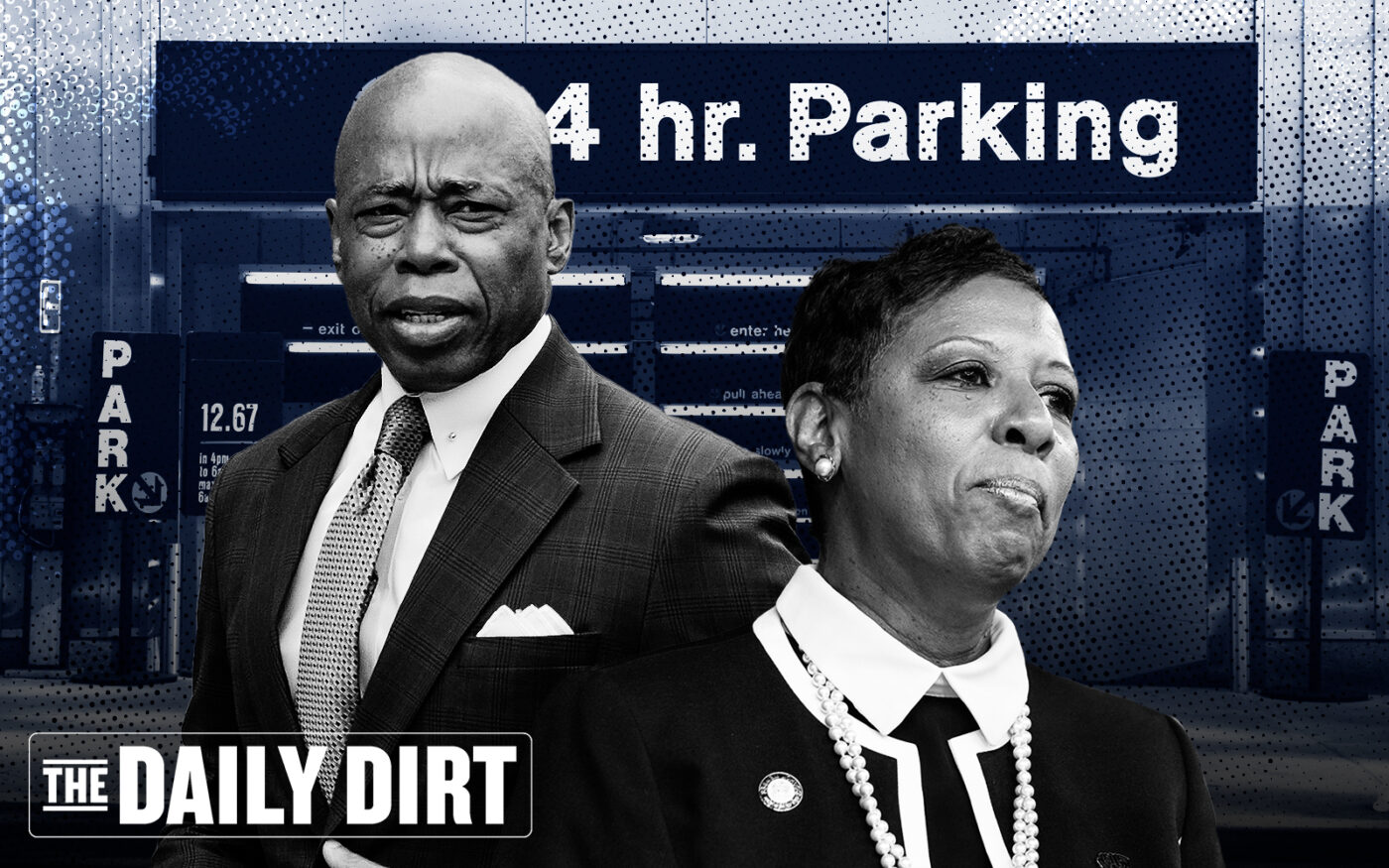A little bit of housing here, but not there, or there.
City Council members are figuring out a version of City of Yes for Housing Opportunity that they can live with. Unsurprisingly, the proposal to eliminate parking minimums citywide is under fire.
The Council showed in August that it is squeamish about freeing developers from parking requirements, even in a rezoning anchored by four new Metro-North stations.
Members have criticized City of Yes as a “one size fits all” approach to zoning reform, arguing that developers in transit deserts should be required to provide parking alongside their housing projects. The administration has countered that the plan is tailored to each neighborhood and that developers will build parking of their own volition where the market demands it.
As the City Council’s zoning panels prepare to vote on the text amendment Thursday, members are still hashing out what it will ultimately look like. Crain’s reports that the version voted on will likely create three zones with separate parking rules for new housing construction.
During the New York Apartment Association’s podcast this week, CEO Kenny Burgos predicted that the City Council would target the parking provisions in City of Yes.
“Much of the City Council is worried about backlash from allowing market forces to determine the amount of parking built in the city, and it is very likely that they are going to gut the City of Yes to make sure a small number of angry residents are comforted,” he said. He described the current policy as “government-forced overbuilding of parking spots.”
City Planning estimates that City of Yes could generate as many as 109,000 additional apartments over the next 15 years. But weakening the proposal to eliminate parking requirements could cut that projected unit count in half, the Regional Plan Association told StreetsBlog.
Other cities have eliminated parking minimums to boost housing construction, and even parts of NYC have seen the impact of such changes. The 2016 Zoning for Quality and Affordability amendment, which could have benefited from a snappier name, got rid of parking minimums for affordable and senior housing projects in transit-rich districts. Affordable housing development in those areas increased 36 percent annually after the passage of ZQA, the Regional Plan Association found.
Though City of Yes is regarded as Mayor Eric Adams’ signature housing policy, senior members of his administration have largely taken the lead on public advocacy for the proposal since his indictment.
A number of the candidates vying for Adams’ job have voiced support for City of Yes, while saying much more is needed to address the city’s housing needs. On Wednesday, former Comptroller Scott Stringer urged the Council to approve it, but called it a “drop in the bucket” in terms of the amount of housing that needs to be built.
Sen. Zellnor Myrie expressed a similar sentiment, but urged the Council to “resist efforts to revise the proposal in any way that would yield fewer homes.”
“If we want to build a city where every New Yorker can put down roots, then every neighborhood and resident has a role to play in supporting more housing. It’s time to build our city up — not water down solutions,” he said.
What we’re thinking about: How many of the 51 Council members will vote for City of Yes? Send a note to kathryn@therealdeal.com.
A thing we’ve learned: A half-empty village on the island of Sardinia is using the U.S. presidential election as a marketing tool. Officials in Ollolai launched a website attempting to appeal to Americans upset by the Nov. 5 election results, CNN reports. Ollolai is selling rundown homes for as low as $1 in a bid to attract new residents and rejuvenate the area. Some move-in-ready homes are $105,000.
Elsewhere in New York…
— Citing drought conditions, the city has suspended issuing permits for open flames or fireworks in city parks, Gothamist reports. In the first two weeks of this month, the FDNY responded to 217 brush fires. “The measures we’re announcing today will help prevent additional fires, protect our natural spaces and our air, and keep New Yorkers safe,” Mayor Eric Adams said in a statement.
— The mayor on Wednesday tapped Sanitation Commissioner Jessica Tisch to lead the NYPD, Politico New York reports. Edward Caban resigned as commissioner after his phone was seized as part of a federal corruption probe. Tisch is the fourth police commissioner of Adams’ first term.
— The City Council on Wednesday held a confirmation hearing for Muriel Goode-Trufant, whom the mayor tapped to serve as the city’s top attorney, the New York Daily News reports. Goode-Trufant received a warmer reception than the mayor’s first pick, Randy Mastro, who was grilled in an August hearing that led him to withdraw.
Closing Time
Residential: The priciest residential sale Wednesday was $32 million for a 3,114-square-foot condominium at Vornado’s 220 Central Park South. Deborah Kern of The Corcoran Group had the listing.
Commercial: The largest commercial sale of the day was $18.8 million for a 49,264-square-foot, 51-unit apartment building at 88-56 162nd Street in Jamaica.
New to the Market: The highest price for a residential property hitting the market was $20.5 million for a 3,873-square-foot condominium unit at 111 West 57th Street, the Midtown supertall developed by Michael Stern and Property Markets Group. Nikki Field and Patricia Parker of Sotheby’s International Realty have the listing.
Breaking Ground: The largest new building application filed was for a 193,423 square-foot, 37-story Extell Development project at 655 Madison Avenue. Permits were filed by Beyer Blinder Belle Architects. — Matthew Elo
